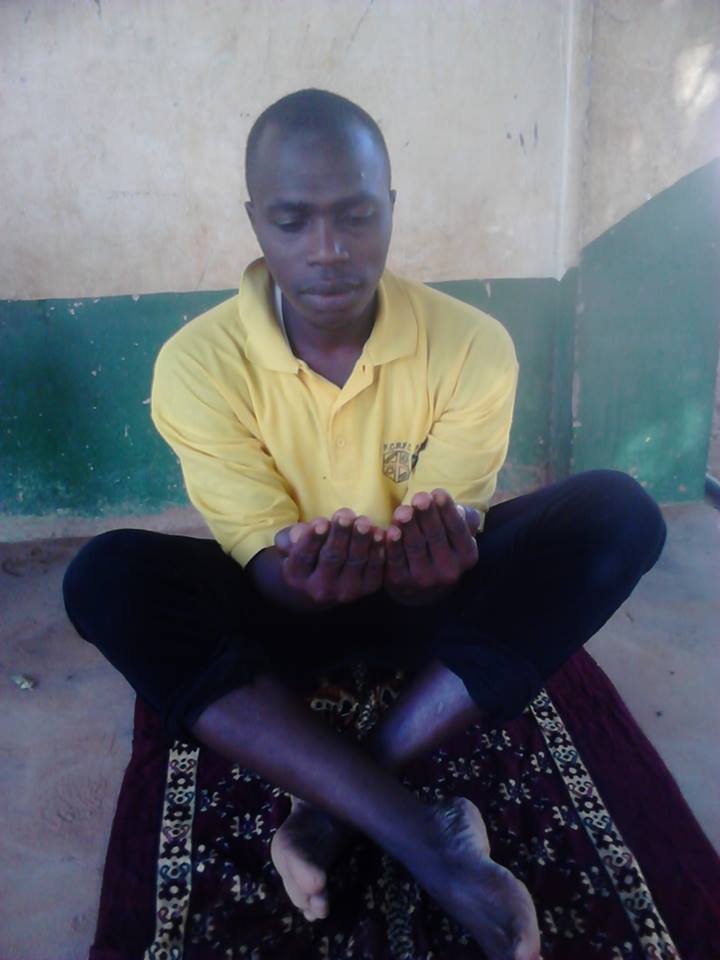

Lamin Bajinka is a very fortunate man, a history teacher in a country where the unemployment rate is sky high. Yet, his days are far from care free, and often he too dreams about a comfortable life in Europe or America. Originally from the rural part of the Gambia, he lives in an urban area during the academic year, and moves back with his extended family on a farm during holidays. There he ploughs the fields by hand and tries to assist his relatives. «We grow delicious watermelons», he boasts. A devout muslim, he often prays and finds comfort in simple things. In his spare time, he trains the local soccer team, and it is not without pride that he talks about their many achievements on the pitch.
Historyradio.org: Tell us a little about your background. Why did you decide to study history?
Lamin Bajinka: I began my education in a small village called Kiti. Then I went to the Gambia college campus in Brikama, which is five kilometres from my native land. Brikama has about 90 000 inhabitants. I sometimes live in a town called Brufut, on the Gambian coast, with my mum.
My grandfather inspired my interest in studying history. During my youth he narrated vivid stories to me, which inspired to know the history of this land and her people.
Historyradio.org: How many students do you have, how old are they and what do you teach them?
Lamin Bajinka: I teach classes of 35 to 40 students and we have 4 history classes in the school. The age of my students differ. They are between 15 and 20, but there is nobody older than 20. In the Gambia, the history syllabus is divided into two: National History and West Africa and the Wider World. We try to read more about our own country and West Africa.
Historyradio.org: What about your pay as a teacher, is it sufficient for a decent life?
Lamin Bajinka: No, my wages are not enough for decent life because I can’t even buy a bicycle or construct my own house.
Historyradio.org: And tuition, is it free for all Gambians?
Lamin Bajinka: Yes, today basic education is free for all Gambians. Girls were the first to get free tuition, in order to empower and encourage female education in the country.

Historyradio.org. What sort of methods do you apply in your classroom? Lectures? Group work?
Lamin Bajinka: I normally I put the child at the center of the class and allow them to express their own understanding of the subject or topics. Then we have group work while I guide them.
Historyradio.org: What are the greatest difficulties that a Gambian student faces in school?
Lamin Bajinka: Many have difficulties with the distance they travel to attend school. Not every village or community is blessed with a school. So, as a result, some students travel far in order to get a better education.
 Historyradio.org: Once a student graduates, what are their chances of attending university?
Historyradio.org: Once a student graduates, what are their chances of attending university?
Lamin Bajinka: The chances are very slim due to the student’s financial circumstances. I am a good example of this, I haven’t finished my university degree. Yes, there are scholarships, but it is not sufficient for the number of people who want to have a university education.
Historyradio.org: Do you think there is adequate focus on Gambian and west African history in the media?
Lamin Bajinka: There is not enough focus on west African history, particularly Gambian history. European countries don’t focus much on our history in their media, do they?
Historyradio.org: If you were to teach Gambian history to a European class for a day, what events and topics would you focus on?
Lamin Bajinka: I will focus on the ethnic groups of Gambia, that is the people of the country, their social and political structure, and our economy. Then you can see how we live.
Historyradio.org: If you were to recommend a book on Gambian history, what would it be?
Lamin Bajinka: If I am to recommend a history book for my region, it will be any history of the ethnic groups of the Gambia that you can find. Our diversity is so important.
Historyradio.org: What are your dreams for the future?

Lamin Bajinka: I pray to become a successful business man.
| The Gambia: |
| There are 8 main ethnic groups in the Gambia: Mandinka, Wolofs, Akus, Jola, Fulanis, Serahule, Serer and Tukulor all living in relative peace. |
